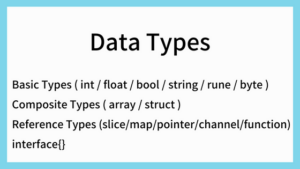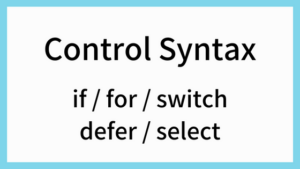We will check how to implement functions with Go. We will implement “multiple return values,” “named return values,” “variable length arguments,” “higher-order functions,” and “recursive functions” and check their operation.
TOC
Basis
Arguments and Return Values
Here is an example of a function that takes an argument of type int and returns a value of type string.
package main
import "fmt"
func func1(x int) string {
return fmt.Sprint("hello world '", x, "'.")
}
func main() {
fmt.Println(func1(1234))
fmt.Println(func1(5678))
}hello world '1234'.
hello world '5678'.Multiple Return Values
package main
import "fmt"
func func2(x, y int) (int, int) {
return x + y, x - y
}
func main() {
x, y := func2(10, 5)
fmt.Println(x)
fmt.Println(y)
}15
5Named Return Value
The following example returns a value with a return value named add sub.
package main
import "fmt"
func func3(x, y int) (add, sub int) {
add = x + y
sub = x - y
return
}
func main() {
x, y := func3(10, 5)
fmt.Println(x)
fmt.Println(y)
}15
5Variable Length Parameter
Variable-length arguments can be implemented with the notation ....
package main
import "fmt"
func func4(i ...int) int {
fmt.Println("-----------------")
fmt.Println(i)
sum := 0
for _, v := range i {
sum += v
}
return sum
}
func main() {
fmt.Println(func4())
fmt.Println(func4(1))
fmt.Println(func4(1, 2))
fmt.Println(func4(1, 2, 3))
s := []int{1, 2, 3, 4}
fmt.Println(func4(s...))
}-----------------
[]
0
-----------------
[1]
1
-----------------
[1 2]
3
-----------------
[1 2 3]
6
-----------------
[1 2 3 4]
10How to use it one step further
Higher-order functions
Below is an example implementation of a higher-order function (a function that can take other functions as arguments).
package main
import "fmt"
func add(x, y int) int {
return x + y
}
func sub(x, y int) int {
return x - y
}
func ope(
x, y int,
cb func(int, int) int,
) int {
return cb(x, y) + 10
}
func main() {
fmt.Println(ope(10, 5, add))
fmt.Println(ope(10, 5, sub))
}25
15Recursive function
Let’s try to find the factorial with a recursive function.
package main
import "fmt"
func factorial(i int) int {
if i < 0 {
return -1
} else if i == 0 {
return 1
} else {
return i * factorial(i-1)
}
}
func main() {
fmt.Println(factorial(-10))
fmt.Println(factorial(0))
fmt.Println(factorial(4))
}-1
1
24Slice with function as an element
package main
import "fmt"
func main() {
var tasks = []func(int) string{
func(i int) string { return fmt.Sprintf("aaa %d", i) },
func(i int) string { return fmt.Sprintf("bbb %d", i) },
func(i int) string { return fmt.Sprintf("ccc %d", i) },
}
for i, task := range tasks {
fmt.Println(task(i))
}
}aaa 0
bbb 1
ccc 2Immediate function
package main
import "fmt"
func main() {
func(m string) {
fmt.Println(m)
}("Hello World")
}Hello World



